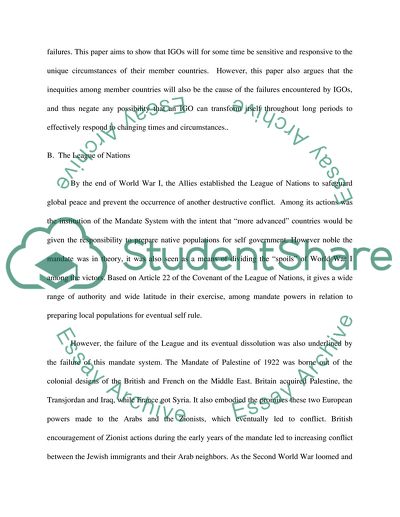Cite this document
(“Are the great IGOs (such as the League of Nations or the UN) efficient Essay”, n.d.)
Retrieved from https://studentshare.org/miscellaneous/1538309-are-the-great-igos-such-as-the-league-of-nations-or-the-un-efficient-in-accomplishing-the-goals-for-which-they-are-founded
Retrieved from https://studentshare.org/miscellaneous/1538309-are-the-great-igos-such-as-the-league-of-nations-or-the-un-efficient-in-accomplishing-the-goals-for-which-they-are-founded
(Are the Great IGOs (such As the League of Nations or the UN) Efficient Essay)
https://studentshare.org/miscellaneous/1538309-are-the-great-igos-such-as-the-league-of-nations-or-the-un-efficient-in-accomplishing-the-goals-for-which-they-are-founded.
https://studentshare.org/miscellaneous/1538309-are-the-great-igos-such-as-the-league-of-nations-or-the-un-efficient-in-accomplishing-the-goals-for-which-they-are-founded.
“Are the Great IGOs (such As the League of Nations or the UN) Efficient Essay”, n.d. https://studentshare.org/miscellaneous/1538309-are-the-great-igos-such-as-the-league-of-nations-or-the-un-efficient-in-accomplishing-the-goals-for-which-they-are-founded.


